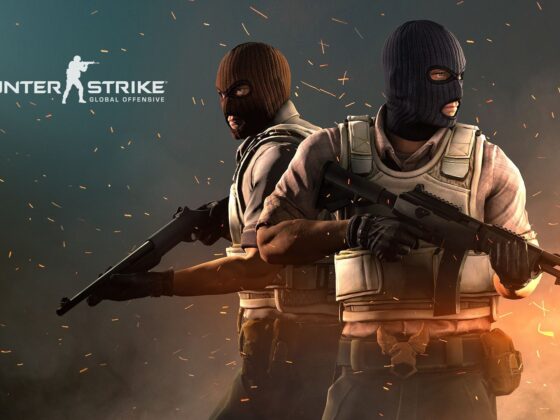Mankind, Redefined is a new book by Dr. David Orban that explores the future of humankind and how it will be defined by its ability to use technology.
Mankind, Redefined is a book written by the author of Humankind and Humankind Review 2023. It discusses how humankind has changed in the last few decades.
For more than three decades, Sid Meier’s Civilization series has served as the gold standard against which all 4X games set in human history have been measured. Any game that wants to play in that universe will be compared to that benchmark, whether it wants to or not.
Amplitude Studios, the creators of the Endless games (Endless Legend and Endless Space), thought they could do it better this time. Even if they didn’t succeed, you have to give them credit for trying.
Humankind is the result of that work, and after spending 60 hours playing it over four days — and forcing myself to sit down and write this review rather than play it again — I have to declare that it exceeds Civilization as the next great 4X strategy game.
You’ve probably got more than a passing interest in this genre if you’re reading this review. You’ve undoubtedly tried Civilization 6, and if you’re anything like me, you found it to be a collection of intriguing concepts that never quite worked out — all before returning to Civ 5 as your go-to on-Earth 4X game.
Humankind has taken all of those intriguing “that didn’t quite work” ideas, worked out how to improve them, and then gone out and improved them.
Review of Humankind: Mankind Redefined
For one thing, the Districts system has been redesigned here, where each tile has a specialized building for food, production, money, research, or another resource. Rather of having every unit of population work on a tile on a central city screen, as has been the case in Civ-style games for as long as they have existed, tile production is completely decoupled from that mechanism.
Districts, not pops, generate resources, and they take use of terrain advantages to the point that every tile that borders your districts contributes its own basic production, whether your city has one or 100 pops.
Furthermore, rather than defining a city’s useful radius strictly by “three tiles away” logic, the game map is divided into provinces into which you build a city, taking advantage of the province’s resources rather than defining a city’s useful radius strictly by “three tiles away” logic.
This frees up that population for use in ways you may not expect, with city pops supplementing district production to allow for a little more specialization, providing a layer of customisation to cities without making the choice on how to utilize a pop too apparent.
Pops may now be devoted to generating one of the game’s four main resources — food, industry, money, or science — or you can recruit them into your military, losing them in your cities but not stifling your expansion. Standing armies are conceivable in a manner that they were never quite right in Civilization.
The Ages of Rock
Humankind also tinkers with the Age system, which describes the development of human advancement from a Neolithic tribe through the Ancient, Classical, Medieval, Early Modern, Industrial, and Contemporary periods.
The Neolithic period reminds me of the first water level in Spore, when your tiny microbe gathers enough plants or eats enough prey to get to the fun portion of the game.
It is Humankind’s weak spot, although it does push you to explore the region around you and eliminates the propensity of 4X games to disregard the initial X of “X-Plore.” It’s a tutorial without really being one.
You’re offered much more intriguing options in each of the next six ages. You may alter your culture as you get older, starting with the Babylonians or Egyptians in the Ancient Age, then progressing to the Achaemenid Persians, the Franks in the Middle Ages, and so on. Alternatively, you may stick with your current culture and earn more Fame at the cost of losing a cultural benefit from the new culture you choose.
Those cultural benefits are cumulative, but the person with the most Fame at the conclusion of the game wins the game, so you’ll want to get the most out of them. It adds another degree of strategic complexity to the game, just like so many other things in it.
Except in the finale, when it comes to the Swedes. Their scientific bonus is just incredible.

Both war and peace
In a vacuum, all of the construction and upgrading mechanisms are fantastic, but this isn’t a city builder; it’s a competitive business, whether in single-player or multiplayer.
Unlike in Civ, where diplomacy is primarily done with an AI whose default state is “kill everything it believes it can win a war against,” the computer players in this game are designed to understand that even if they could win, going to war is not necessarily in their best interests.
This isn’t to imply they’re all cowards. If the relative power of your armies resembles “1987 Mike Tyson vs. Jimmy from South Park,” the AI is far more likely to bow to your will, and you might get up in the morning, conquer their kingdom, and be home for lunch.
However, the game does a far better job of considering similar ideas, cultural diffusion, and religion; AI opponents are much less inclined to attack someone they consider family rather than natural competitors.
The best part is that the game boils everything down to a single figure called “War Support.” You can’t declare war in peacetime if your Conflict Support is less than 80, otherwise you’ll lose effectiveness in that war. During a conflict, the number gradually decreases and is changed by combat victories and losses, with the first to reach zero being compelled to surrender.
To put it another way, it addresses an issue that has plagued Civ from the beginning. The AI’s “We’re best buddies with trade connections and mutual adversaries, but you’re on my border and I have two more units than you, so WAR!” behavior has been extinguished.
And what if you do decide to go to war? Every battle includes a nice little tactics game in which you have some influence over where your troops are positioned, how they fight, and whether or not they utilize flanking and other advantages to punch above their weight. It’s not simply the usual calculation for a greater base strength. While it isn’t quite Total War in terms of complexity, it does help to alleviate RNG annoyance. It’s a thoughtful touch.
Sieges are also particularly well-done since they allow you to decrease the amount of defenders in a city. That is, if you are willing to wait out the AI and can withstand the arrival of a relief army or your own nation’s loss of desire to fight as the War Support meter ticks down.

The Negatives
Of course, no game is without faults, and Humankind is no exception.
For starters, there are a few annoying problems, ranging from the game’s propensity to stall during battle scenes to some blank text in a few of the game’s choice-card events. Furthermore, the game does not like it when you attempt to load a save or start a new game without first quitting and restarting. When it occurs, you’ll notice a significant drop in performance.
The textures don’t load correctly on either your avatar or the diplomatic avatars for the AI, which is probably the most irritating issue of them. It’s startling to speak to individuals who don’t have a body or a head but yet have their clothes and hairdo. Hopefully, Amplitude will address those issues, but after 60 hours of play, I have yet to experience a game-breaking glitch or a crash-to-desktop.
However, Humanity’s most serious problem at the moment is that different tactics are extremely imbalanced. The game is extremely simple for players that select builder-focused development routes. In my different playthroughs, the game was incredibly easy every time I played as a builder tree. Any other approach I tried had results that varied from frustrating to downright unwinnable.
The illusion of choice exists. You either out-produce your competitors or you lose.
But, guess what? I’m not going to hold it against Humankind since there is a “correct” method to play every strategy game ever created. And I’m not just talking about video games. It’s not for nothing that whole libraries have been written on ancient board games like Chess and Go, laying out the best strategy for each.
Sure, it’s a pity that, due to the basic fact of how 4X games operate, a game that wants you to think you have unlimited options eventually amounts to one choice being significantly better than the rest. But it isn’t a criticism of humanity. It’s a blemish on the 4X genre.
The Bottom Line in the Humankind Review

Pros
- The 4X genre is redefined in a manner that sets a new benchmark.
- Scalable difficulty will appeal to both newcomers and veterans of the 4X genre.
- Civilization perks may be mixed and matched to create a variety of builds.
Cons
- At launch, it isn’t particularly well balanced.
- Mechanics favor some playstyles over others.
- Some irritating launch issues make for a choppy experience at times, particularly in battle.
- Early on in the game, it may be a bit of a grind.
Simply said, Humankind addressed everything Civilization 6 did wrong, added some new concepts to the genre, and produced the greatest 4X game I’ve played since Civilization 5 in 2011 — which, according to Steam, is the ninth-most-played game in my whole collection with over 400 hours.
For 4X historical games, this is the new standard. It’s an essential must-play for lovers of the genre, and it’s finally dethroned Firaxis as king of the hill.
[Note: The copy of Humankind used for this review was supplied by SEGA.]
Mankind, Redefined is a new game that has been released on iOS and Android. The game is a mix of puzzle and match-3 gameplay. Reference: humankind game reddit.
Related Tags
- humankind review ign
- humankind review reddit
- humankind metacritic
- humankind gameplay
- humankind release date



